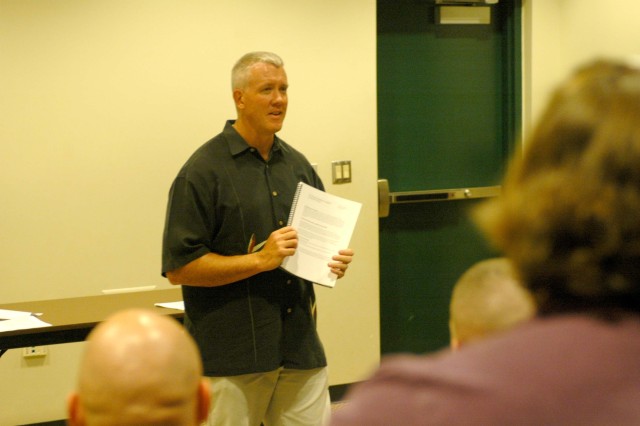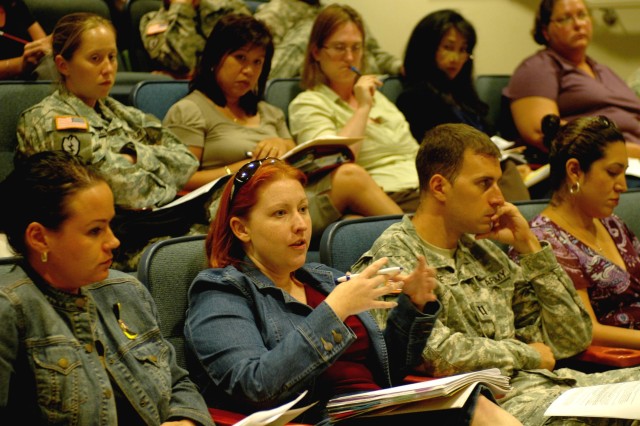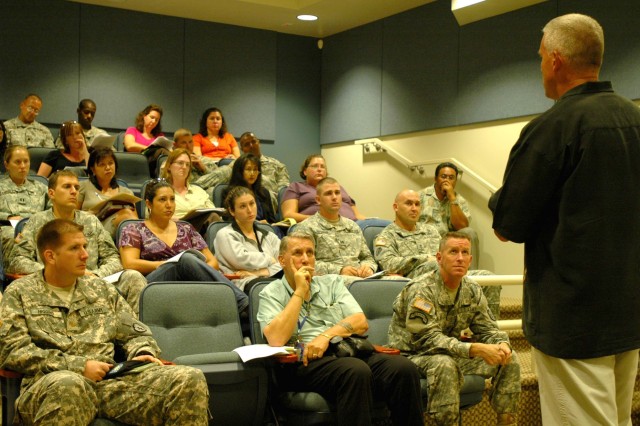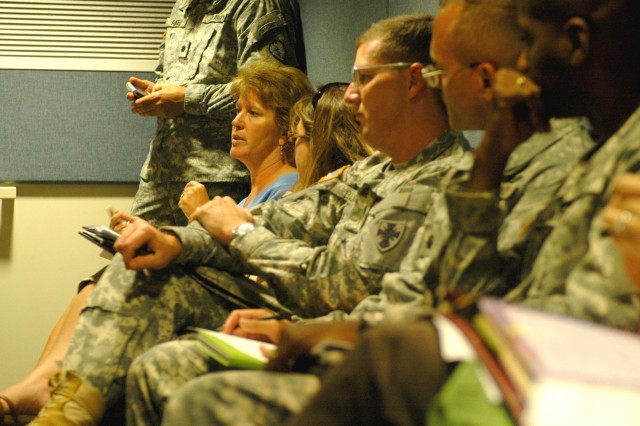<p>SCHOFIELD BARRACKS, Hawaii - Unit family readiness groups (FRGs) exist to help address needs that arise out of questions like: What can my spouse do to better tolerate our separation' Where can we get help for a child who's having difficulties at school' Are resources available to help us manage deployment pay' </p><p>As such, FRGs can be invaluable to deploying Soldiers and their families. Critical to FRG success, however, are the few who ensure that family support is coordinated and responsive. </p><p>On July 14, those vital few, known as family readiness support assistants, or FRSAs, and other military leaders, participated in a town hall meeting here, at the Kalakaua Community Center. </p><p>Seventeen Hawaii-based FRSAs and an equal number of military leaders, to include current and future rear detachment commanders, convened at Schofield Barracks to discuss certain administrative, training and performance evaluation issues, as well as hiring practices and policies related to the FRSA program. </p><p>The program began in 2003 when the need to further address family readiness during times of rapid deployments became apparent. </p><p>An FRSA's main duty is to provide administrative and logistical support to commanders, rear detachment commanders and volunteer FRG leaders. By taking the administrative burden off volunteers, FRSAs allow FRG leaders to concentrate on performing outreach to Soldiers and their families, thus preserving stability on the home front, according to Carolyn Killian, Well Being/Quality of Life specialist, FRSA program manager, U.S. Army-Pacific. </p><p> "FRSAs are combat multipliers," said Killian. "They allow commanders to focus on the mission, while the FRSA supports the commander and the FRG leader, which increases the level of family readiness of the unit." </p><p>Because of their importance to mission success, Killian believes that providing forums for discussion of specific concerns and issues impacting FRSAs is critical to program success. </p><p>Senior military leaders agree. </p><p> "Public forums like today's town hall are critical to the success of the program," explained Col. Thomas Guthrie, chief of staff, 25th Infantry Division. "They provide the opportunity to dialogue, to publicly discuss concerns and opinions, and to basically get answers to specific questions about a resource and a program that are not only evolving, but critical to mission success." </p><p>Lori Garcia is the FRSA for 2nd Battalion, 27th Infantry Regiment, 3rd Infantry Brigade Combat Team. Motivated simply by a genuine interest in helping Soldiers and their families better tolerate deployment, Garcia explained her role. </p><p> "I see myself as a facilitator," said Garcia. "If I do my job correctly, the command knows exactly what is going on with the FRGs, and the FRGs know exactly what the command wants. Everyone is connected, and no one falls through the cracks like they might have in the past." </p><p>Garcia's rear detachment commander, Capt. Charles Romero, acknowledged her extraordinary value to his unit. </p><p> "Lori's a critical piece of deployment for us," said Romero. "Among other things, she frees up a staff officer or company commander, which allows them to focus on preparing their Soldiers for (deployment) operations. </p><p> "With the group of ladies that we have running the FRGs within our battalion, and with Lori administering and coordinating for us, I have total confidence that we can take care of all our families '24/7,'" he said. </p>
FRSAs vital link between commanders, families
By Sgt. Mike Alberts, 25th Infantry Division Public AffairsJuly 22, 2008








Social Sharing